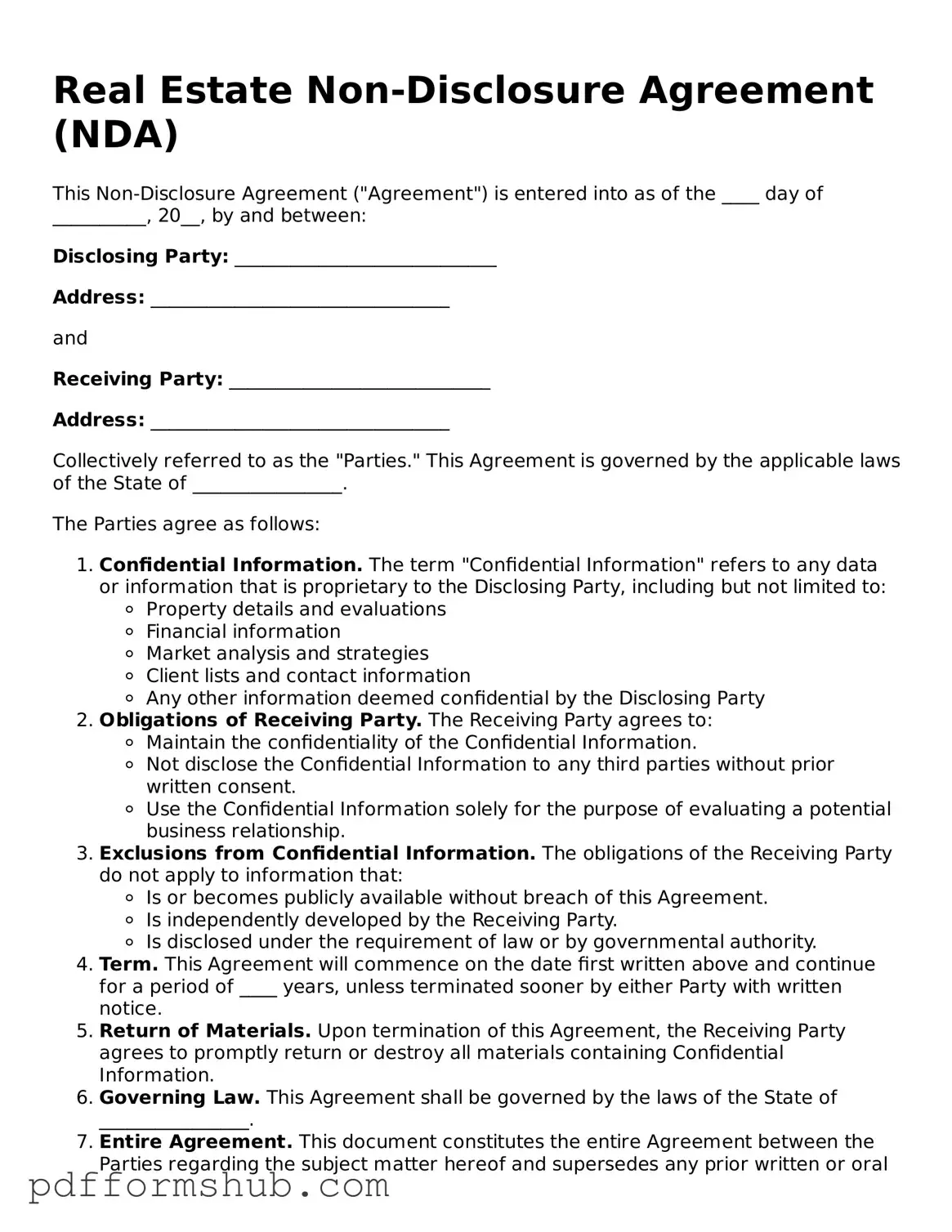Valid Real Estate Non-Disclosure Agreement Form
A Real Estate Non-Disclosure Agreement (NDA) is a legal document that protects sensitive information shared between parties during real estate transactions. This form ensures that confidential details, such as financial data or proprietary business strategies, remain secure and are not disclosed to unauthorized individuals. Understanding the importance of this agreement can help you navigate the complexities of real estate dealings with confidence.
To get started, fill out the form by clicking the button below.
Customize Form

Valid Real Estate Non-Disclosure Agreement Form
Customize Form

Customize Form
or
Free PDF Form
Short deadline? Complete this form now
Complete Real Estate Non-Disclosure Agreement online without printing hassles.